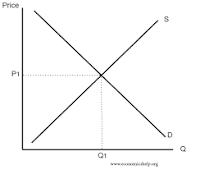[King Solomon]
As I wrote last week, basic concepts may be universal to human societies
and have a word to express them but the scope of the term may vary in terms of
meaning and impact. All languages, including Hebrew, have a lexical item for
justice since human societies sometimes experience internal conflict that must
be resolved. What makes the Hebrew word tzedek
unique are the scope of its implications and their impact on Jewish society.
Formally, the dictionary definitions are similar on most languages. The
Webster’s Unabridged Dictionary, an impressive volume in terms of physical
weight alone, defines justice as being right, righteous, equitable, morally
consistent, conforming to a principle, punished and compliant with the law. Le
Petit Robert, Little Bob, emphasizes, appreciation, recognition and respect
of the rights and merits of each person and the moral principles of positive
law. The Even Shoshan Hebrew dictionary, the bedrock of the modern language,
begins with “straight, honest, the way of truth” followed by mentions of
salvation and rescue. The Hebrew meaning is more ambiguous since it does even
hint at conformity to some formal standards but merely refers to an amorphous
concept.
In practice, the word is used differently by each society. Some
societies, notably the United States, emphasize the punishment aspect of
justice. When people call for justice against a killer or rapist, they mean
they want conviction and the death penalty. For example, Afro-Americans rightly
demand justice against police officers guilty of superfluous deadly violence
against members of their community. By contrast, those same minorities, who
have been without access to proper hospitals during the Corona crisis, have not
marched for rectification of this injustice, maybe since American society has
the ethos of individual responsibility, i.e. we each create our own justice,
positive or negative. Other societies, identifying the difficulty of
substantiating justice and attempting to avoid the problem, have joined the
terms law and order and justice. In other words, any action in line with
current laws and regulations is just, regardless of its moral
implications. The results of such a
merging have been absurd, such as some of the policies of the Great Leap
Forward in China, or tragic, as in Nazi Germany. In any case, justice is
defined against some established standard.
Tzedek in Jewish thought is ancient, developed and mainly a positive
commandment. The Jews began as a tribal society where community values and
mutual support were vital for survival. The weak, hungry and sick had to be
supported in every way possible not only for reasons of societal tranquility in
the present but for the future of the tribe. With the Torah and mitzvot, the
positive commandments, these customs became scripturely rooted. Sharing, caring and
helping, to name just a few, became a part of societal justice. Interestingly, the
Hebrew word for charity, tzdaka, is derived the same root. The
issue of punishment for deviations was discussed but was relatively minor. This
recommendations for proper behavior were never completely specific as the form
and scope depend on so many factors as to make “regulation” quite difficult, if
not impossible. This ethos of group justice was reinforced in modern Israel by
the kibbutz way of life, which was based on the socialist principles of “each
according to his ability, each according to his needs” (Karl Marx). This meant
that that a kibbutz was obliged to help each member regardless of that person’s
actual contribution. Thus, the Hebrew use of the word tzedek is much
more demanding on both people and governments as it requires positive action.
The problem with a “universal” justice is that it is in fact extremely
subjective. On the personal level, each party in any dispute feels righteous,
i.e., its point of view is correct. On a larger scale, in an almost zero-sum
world, any change creates both winners and losers whether in terms of money
and/or status. It is impossible to please everybody. Finally, even when
governments try to be just, as in the current attempts to help businesses that
suffered during the Corona crisis, there is a never-ending dispute on who is
more miserable than the other, to twist George Orwell’s words in Animal Farm.
It is extremely difficult to determine whose justice is more just.
As a result, Israeli society often sounds like the sea gulls in Finding
Nemo when Martin the clown fish goes down the wharf: mine, mine, …
Israelis exhibit no reluctance in expressing their feelings regarding
injustice. The Israeli Supreme Court even directly hears request from citizens
demanding justice. This cacophony expresses to a certain degree the lack of consensus
in Israeli society about the meaning of justice but, at the same time, the
consensus that justice should rule the actions of people and government not
only in punishing criminal actions but in promoting an equitable and humane
society. There is an old joke in the 1950’s about Ben Gurion, the first Prime
Minister of Israel, asking Stalin about the number of people that have opposed
his plans. Stalin answers “about three million”, the population of Israel then.
Ben Gen Gurion responds that he has the same problem. It is not an accident
that Shlomo (Solomon) is considered the greatest king in the history of Israel
not due the size of his empire or strength of his military power but for his
wisdom in administering justice.
* To provide full access to the blind, add picture captions.









